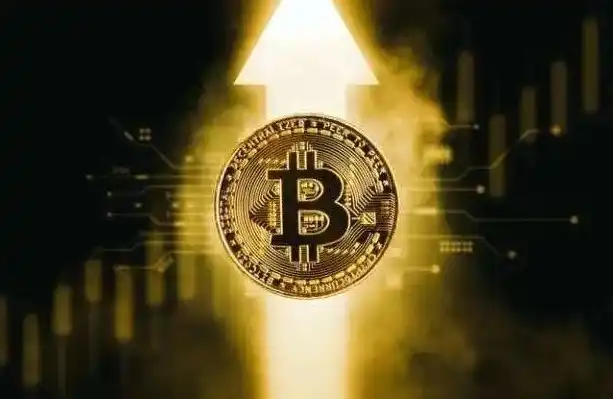Fake news manipulates Bitcoin again, hackers’ performance on Twitter reaches climax
Author: Luccy, BlockBeats
Editor: Zhang Wen, BlockBeats
Unexpectedly, the plot can be so exciting. As practitioners in the encryption industry, we can be deceived twice by the same thing when trading coins.
On January 10th, the US SEC officially announced on social media that the Bitcoin spot ETF has been approved. This tweet instantly gained millions of views. With emotions building up to this point and coupled with the news that the cryptocurrency industry has been waiting for years, no one would think that these few lines of text would have any problems.
If you could see the comments under that tweet at that time, you would definitely be infected by people's emotions, open the trading platform, and place your own buy order along with the bullish candlestick of Bitcoin.
An abstract thing is coming.
SEC Chairman Gary Gensler will say in a few minutes that "spot ETFs have been approved" is false news. The reason is that SEC's official Twitter account was hacked and the tweet was just sent by the hacker.

Due to the impact of false news, the price of Bitcoin has experienced drastic fluctuations, rising to nearly $48,000 before quickly dropping below $45,000, with a short-term fluctuation of nearly 10%. According to Coinglass data, the Bitcoin market liquidated $56.2 million in the past hour, with long positions accounting for about 60%.
The market is also confused, not knowing who's Twitter account was hacked, SEC or Chairman Gensler.
Market Deceived Again by ETF Approval News
This is already the second time the market has been deceived by the same news.
Last October, the veteran cryptocurrency media Cointelegraph released the news of Bitcoin ETF being approved by SEC on social media in all capital letters using the "shocking style". In less than half an hour, the reading volume of this tweet reached nearly 1.5 million, and the market value of Bitcoin, which is worth 550 billion US dollars, broke through multiple integer digits and reached 30,000 US dollars. Subsequently, multiple sources came forward to refute the news, and Bitcoin fell back above 27,000 US dollars, ending the 10-minute climax.
Related reading: "A fake news worth $100 million that can go down in history".
After a 3-month hiatus, with the arrival of the bull market, the price of Bitcoin has already stabilized above $40,000. However, whether or not the spot ETF will be approved still affects the market's direction. Earlier this year, Matrixport reported that the SEC is expected to reject all proposals in January. As soon as the news came out, Bitcoin fell below $41,000 and immediately rebounded, even breaking through $47,000 on January 9th.
However, unlike the false news reported by Cointelegraph, there were different voices at that time to refute it. This time, there are different voices. Among them, Bloomberg analyst Eric Balchunas stated on his social media platform that although there are clues pointing to the theft of the SEC official account, he is more inclined to believe that the false news came from within the SEC or that "SEC employees prepared a planned tweet but entered the wrong date" because the wording of the tweet is very consistent with the SEC style, so it is not a simple prank.

Eric Balchunas also pointed out that the SEC is expected to announce the approval of a Bitcoin spot ETF between 4:00 pm and 5:00 pm Eastern Time on Wednesday (5:00 am to 6:00 am Beijing Time on Thursday) and will be listed on Thursday local time. BlockBeats has compiled the progress of the ETF, which can be referred to in the "Timeline | Tracking the Progress of Bitcoin Spot ETF".
The decision on Bitcoin spot ETF not only relates to the price changes of Bitcoin, but also will become a turning point for the entire cryptocurrency market. If the approval of Bitcoin spot ETF is inevitable, then it is particularly important to be the first to know the true news of whether it is approved or not. In addition to paying attention to SEC official news, other identification methods can be seen in "5 key information that must be paid attention to about Bitcoin spot ETF".
马斯克手下的推特已经是黑客天堂
translates to
Musk's Twitter account has become a hacker's paradise
In recent months, well-known Key Opinion Leaders (KOLs) have become the main targets of social engineering attacks. Even official project Twitter accounts have frequently been hacked, and even industry-leading security company Twitter accounts have been hacked and attached with phishing links. Many users have had their wallets emptied due to clicking on these phishing links.
Although there have been incidents of Twitter accounts being hacked before Musk took over, and there have been occasional reports since then, today's hack of the SEC, which is closely tied to the development of the entire cryptocurrency industry, has sparked a discussion about Twitter security.
According to reports, as early as July 15, 2020, hackers used social engineering to access Twitter's management tools through a Twitter employee, and 130 well-known Twitter accounts were invaded by external parties to publish fraudulent tweets. Within minutes, more than 320 transactions occurred in one of the wallet addresses, and over $118,000 worth of Bitcoin was stolen.
Initially, among these exploited accounts were well-known media and project parties such as Coinbase, CoinDesk, and Binance. The scam then moved to more high-profile accounts, with the first tweet on these personal accounts being sent by Musk himself.
After the event described as "the most serious hacking attack against major social media platforms to date", former members of Twitter's security department said that the company had received potential internal attack and other network security alerts since 2015, but these measures were shelved in support of more revenue-generating initiatives.
Nowadays, Twitter has been taken over by Musk, and these so-called "cybersecurity measures" seem to still be on hold.
According to BlockBeats incomplete statistics, the first person to encounter social engineering attacks was the editor-in-chief of the mainstream US media Forbes. After communicating with imposters and crypto Kol@0xmasiwei about friend.tech and other imitated SocialFi projects, they sent a friend.tech "identity verification" link. After verification by SlowMist security personnel, the link was found to be a phishing link.
Two months later, major KOLs such as @0xKofi, @0xcryptowizard, and @0xSea all revealed their experiences of being targeted by social engineering attacks. In addition, projects such as the ARPG loot-based blockchain game "SERAPH: In the Darkness", decentralized finance protocol Set Protocol, DeFi lending platform Compound, and Solana-based NFT lending protocol Sharky have all had phishing links posted on their official channels. Even security company CertiK was not spared.
Related reading: "Elon Musk's Twitter has become a hacker's paradise."
Many community netizens have reported that after clicking on these official phishing links, their wallets were emptied instantly. Among them, @Crypto_w59 stated that he lost nearly $350,000 in such incidents.

On January 3rd, a screenshot from a hacker forum circulated online, showing that hackers had stolen over 200 million email addresses and phone numbers of Twitter users. While it cannot be fully confirmed if the data is authentic and from Twitter, Troy Hunt, the creator of the website Have I Been Pwned, stated that the data appears to be "pretty much as described".
As for the inquiry regarding this data leak, Twitter has not responded.
However, according to the investigation report released by Safety regarding the "official Twitter account of the US SEC being hacked" incident, it was found that the intrusion was caused by an unconfirmed individual who had control over the phone number associated with the US SEC account through a third party.

Welcome to join the official BlockBeats community:
Telegram Subscription Group: https://t.me/theblockbeats
Telegram Discussion Group: https://t.me/BlockBeats_App
Official Twitter Account: https://twitter.com/BlockBeatsAsia
 Forum
Forum OPRR
OPRR Finance
Finance
 Specials
Specials
 On-chain Eco
On-chain Eco
 Entry
Entry
 Podcasts
Podcasts
 Data
Data



 Summarized by AI
Summarized by AI







